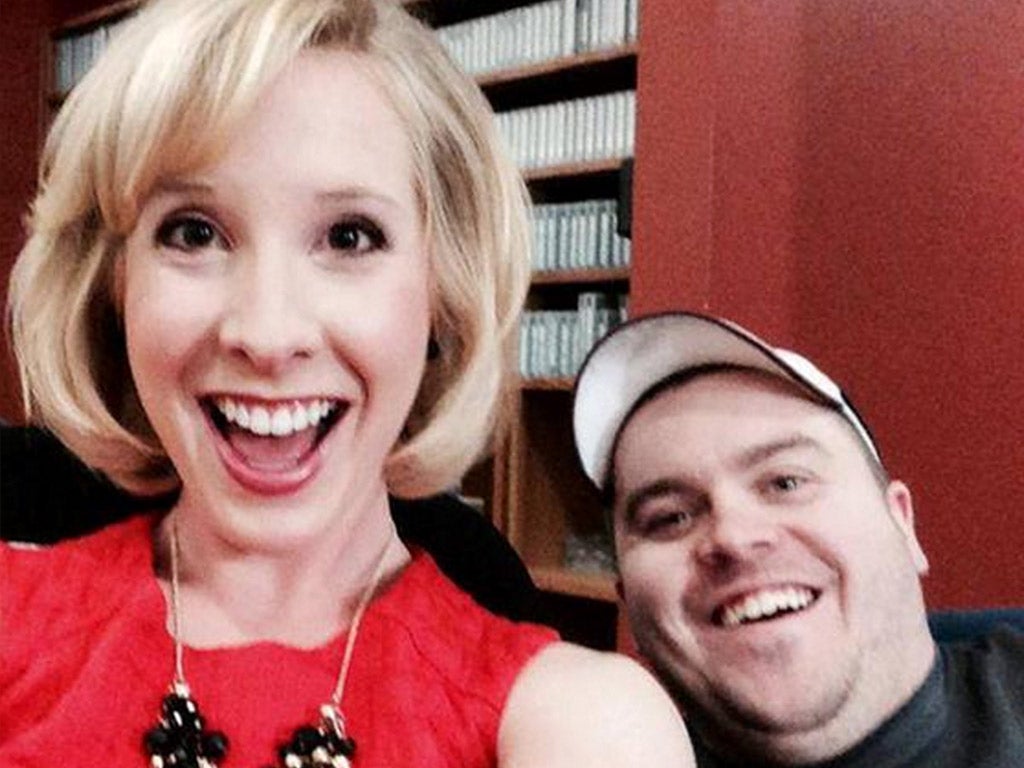How tweeting the Virginia shootings can affect your mental (and physical) health for years to come
As a psychologist who studies the impact of repeated exposure to graphic images of horror, I can say unequivocally that there is no benefit to looking at those images

Early Wednesday morning, if they were paying attention to a story about a recreational activity on a local newscast, audience members in the US were shocked to see a live murder on their television screens. Although numerous murders are portrayed during the evening hours on fictional television programs or in Cineplex theaters, this was different. A young reporter and cameraman were shot in cold blood. There were screams. The camera dropped. This was real.
A couple decades ago, that might have been the end of it. People outside Roanoke, Virginia, might have heard about the story, shook their heads about the sad loss of life, the easy access to guns, or the mental health of the shooter, and moved to the next news event. But in 2015, things are different. The shooter posted live Tweets about the shooting on his Twitter account; he posted a video of the actual shooting on his Facebook account.
The video of the murders was replayed throughout the day (and despite the fact that Twitter and Facebook disabled the shooter’s accounts, the material is still easily accessible online). With a few swipes on their smartphones, people rapidly distributed graphic pictures and loops of live video of the shooting. Tabloid newspapers in the United States and elsewhere have splashed disturbing pictures of the final seconds on their front pages. The deaths of the young reporter and cameraman are now permanently etched into the minds of millions.
As a psychologist who studies the impact of repeated exposure to graphic images of horror, I can say unequivocally that there is no benefit to looking at those images. There is no benefit to listening to the screams. There is no benefit to sending them to friends and acquaintances. Indeed, systematic research my colleagues and I conducted after the September 11, 2001 terrorist attacks and the Boston Marathon bombings suggest that repeatedly seeing these images can have negative consequences.
We found that individuals who watched hours of television about the 9/11 attacks during the week afterwards were more likely to develop post-traumatic stress symptoms and physical health problems 2-3 years later . With increasing hours of both traditional and social media exposure (including online, television, print, radio) of the Boston bombing, a national sample of Americans reported increasing numbers of psychological stress symptoms .
Although many argue that we should not censure these images – that it is important not to infringe our freedom to see or hear anything we want – too few people recognize their potential for real harm. Social commentators warn us about the possibility of “copycat” crimes as a result of the shooter’s 15 minutes of fame. But from a psychological standpoint it may be far more dangerous than that.
We are all potentially vulnerable to the health effects of graphic images . Research indicates that the effects of seeing this horror are cumulative . It is not just children we need to be concerned about (although we should certainly make sure they are protected from these images as well). But we should all turn off our televisions; we should not purchase the newspapers that sell the gruesome pictures; we should resist the desire to search for images online. If our friends re-Tweet or post the video, we should decline to watch it. Our health is more important than satisfying our curiosity.
Join our commenting forum
Join thought-provoking conversations, follow other Independent readers and see their replies
Comments
Bookmark popover
Removed from bookmarks